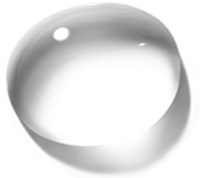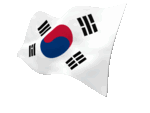A Salute to Gen. Douglas MacArthur
페이지 정보
본문

With its unbelievably accurate and incredibly vivid pictures the National Geographic magazine has never failed to satisfy my curiosity every month, since I subscribed to it more than 20 years ago. My monthly pleasure of opening the latest issue (March 1992) was doubled by an article and some of the historical pictures related to it on an American soldier, whom most of us over fifty in Korea remember too well, but who, like many other great historical figures in the past, was buried in the flow of time: The late General of the Army, Douglas MacArthur.
Once for Korea and for the destiny of freedom-loving Korean people, no individual was more dependable, home and abroad, than this man. From the very hour of the breakout of the Korean War on June 25, 1950, his name, his words and action were the only hope in that hopeless time. Before the full-scale Communist invasion headed by the Soviet-made tanks we had no one to turn to, but to this old American soldier of 70, five-star general and the hero of the World War II. On being asked to help us by president Syng-Man Rhee through telephone, he flew immediately in his legendary C-54 'Bataan' from Tokyo, Japan, to the outskirt of Seoul, saw himself enemy bombs falling and the frightened refugees streaming down from the north. Then and there he decided to help us. He decided to send American ground combat forces that were under his command in Japan. By the time American troops arrived on July 1, the front line had been moved far down to the southern tip of the country, and South Korea was about to be erased from the map of the world within a few days. With their participation in the battle we could hang on to the line, and eventually could drive the invaders back to the north.
The general stunned everybody, friends and foes alike, by staging a daring landing operation at the port of Inchon and reversed the military situation overnight. Against all military convention he divided his force, holding on to his position south of occupied Seoul, while sending a second amphibious group to land behind enemy lines. The operation was a spectacular success against all the odds. Within days the invaders were desperately on the run to the north, and Seoul was recaptured on September 28.
Most of us who experienced and survived the Communists' occupation and massacre during the war should honestly admit once more, even now, that we owe our lives and freedom to the prompt decision and action of Gen. Douglas MacArthur. I can still vividly recall the miserable life my family had to undergo in Seoul during the three-month occupation. Fear of being rounded up and shot, or sent to where nobody knew, were on the faces of my father, mother and older brothers who were hiding. Everything around was dark, heavy and gloomy.
Amid all that weariness and bleakness there was a ray of light that saved us from despair, and sustained us through the ordeal. It was the voice from the MacArthur Command at Tokyo announcing the new development of the war situation and the day's casualties and damages inflicted upon the invaders. On the appointed time my father and older brothers went up to the attic where an old-style radio was put concealed behind a large book-shelf. In the choking summer heat of June and July, they put a thick and heavy cotton quilt over them in order to muffle the volume of the radio, and listened to the voice of hope. "It's all over," said my father one night climbing down from the attic. "Our troops have landed at Inchon, and on their way to Seoul." We were all crying in silence at the news.
To our great shock, the general who literally rescued us from the Communists' aggression was fired at the peak of the war, and was relieved of all the commanding posts he was holding by president Harry S. Truman on April 11, 1951. The news was a great disappointment and frustration to us because most of us wanted, as this old soldier insisted, to see the end of a war by a victory, not by a substitute for victory. Nonetheless, the war ended on July 27, 1953, where it had started - and where it remains today. The war casualties of U.S. armed forces alone totaled 137,051; of this number 25,604 were killed, 103,492 wounded, and 7,995 were reported missing in action.
It is very amusing to peep into the human weakness or vanity of a person, especially when he is a legendary figure, like Gen. MacArthur, who is hiding behind a public mask. According to the magazine's report, Gen. MacArthur, like a movie star, was very much conscious of his public image and would never lose a chance of boosting it up when it came. He always wore the crisply starched uniform, battered cap with the gold braid, and held the famous corn-cob pipe, which he rarely smoked, except when photographers were likely to be present, and wore the sunglasses only when he thought wearing them made a better picture in the newspaper.
One of the most dramatic pictures in which he appeared was the landing scene in the Philippines in 1944 in which he waded ashore in the knee-deep surf followed by his loyal staffs. The picture that electrified the world was, in fact, accidental. His landing craft ran aground short of the beach and he had to wade ashore. Recognizing the stunning impact of the image in the newspaper, he conducted all the later landings in a like manner, even when he did not have to.
After meeting with the General unexpectedly again in the magazine after more than forty years I fell into reminiscence, and it took me back immediately to the hard times we were all in, when the fate of a free country was flickering, like a candle light before a blast. I felt warm and deep gratitude to this American soldier belatedly, and to so many American soldiers who died in a foreign country far from their home. I don't know much about the world politics and the situations in which we found ourselves at the time of war. What I know is that the war broke out with the Communist invasion from the north, and that we owe what we are now almost entirely to the help and sacrifice of the American soldiers who fought with us. They were friends indeed in need. My impulse told me to drive my car to the Liberty Park at Inchon. Seven years after the War citizens of Inchon had dedicated on September 15, 1957, a statue in memory of the General and his historical landing on September 13, 1950. I followed the order of my impulse. It just took me one and half an hour to get there. Dusk was falling on the horizon when I arrived at the park.
There, on the high pedestal, he stood looking down at the beach where he had launched 70,000 of his men. On the wall behind the statue was engraved that legendary surf-landing scene, which elicited a knowing smile from me. To my great happiness and relief, the memorial park was well kept, tended and taken care of. It was much better now than when I saw it for the last time about 20 years ago. I stood before the General. Ignoring the presence of a few people around, I raised my right hand slowly and gave a solemn military salute to him. Thank you, General. Thank you. Thank you. Thank you....
(April 10, 1992)
- 이전글A Reminiscence 21.01.13
- 다음글Reverie before Osaka Castle 21.01.13
댓글목록
등록된 댓글이 없습니다.








